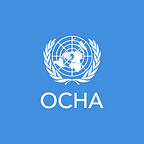When COVID-19 response goes local
When Pakistan declared a state of emergency and lockdown in March due to COVID-19, local authorities in South Waziristan District closed all their outpatient departments, leaving hundreds of people without access to essential medical care.
Education Health Social Awareness Rehabilitation Foundation, a non-governmental organization (NGO), was quick to fill the gap in services by supporting the outpatient departments in three health facilities.
It could do this thanks to arrangements by the UN’s Pakistan Humanitarian Pooled Fund (PHPF) to support a flexible response. With PHPF funding, the NGO carries out free medical consultations and provides much-needed medication to hundreds of patients every day.
At a time when international humanitarian support is stretched more thinly than ever in poor countries, local organizations and actors are playing a stellar role in responding to people in need.
First responders
Local organizations are often the first responders during a crisis. They have strong networks within the community, which helps them identify the most vulnerable groups that need assistance.
Local NGOs also have the experience of dealing with past emergencies, which makes them extremely effective in a humanitarian response. For example, several NGOs are using and adapting their experience in dealing with cholera, Ebola and Zika to prepare communities to face COVID-19.
Since the pandemic was declared, OCHA’s Country-Based Pooled Funds (CBPFs) and the Central Emergency Response Fund (CERF) have provided substantial support to NGOs to kick-start life-saving activities.
Funding for NGOs
Since February, the CBPFs have released around US$340 million to fight the COVID-19 outbreak in 49 countries/contexts. Together, CBPFs and CERF have allocated around $162.7 million to international and national NGOs, and Red Cross/Red Crescent national societies.
OCHA’s pooled funds are providing critical support to humanitarian partners worldwide in their response to the COVID-19 pandemic. Funding from CERF and CBPFs allowed humanitarian organizations to provide life-saving assistance as early as 3 February. The flexible and timely funding allows NGOs and other front-line responders to provide urgent assistance when and where it is needed most.
In Pakistan, PHPF has so far allocated $7.2 million to address the impact of COVID-19. Most of this funding ($6.8 million) has been channelled to NGOs, including $5.8 million to national/local partners.
Some 62 per cent ($128 million) of funding from CBPFs has been allocated to international, national and local NGOs as well as to Red Cross/Red Crescent national societies.
CERF provided an innovative allocation of $25 million through the International Organization for Migration to support front-line NGOs (international and national) in response to COVID-19-related needs in six countries: Bangladesh, the Central African Republic (CAR), Haiti, Libya, South Sudan and Sudan.
Hard-to-access areas
Flight cancellations, movement restrictions and border closures are making it difficult for humanitarians to reach people most in need.
NGOs are playing a key role in these areas. CBPFs are supporting them in hard-to-access areas such as CAR, where $5.7 million (75 per cent of the COVID-19 response allocation) was provided to NGOs.
CBPFs also provided support to NGOs in the Democratic Republic of the Congo ($9.3 million, 85 per cent of the allocation); Iraq ($9.6 million, 82 per cent of the allocation); Sudan ($6.5 million, 60 per cent of the allocation); Syria Cross Border ($20.2 million, about 80 per cent of the allocation); and Ukraine ($3.8 million, 98 per cent of allocation for the response in its eastern areas).
In Sudan, with the support of OCHA’s Sudan Humanitarian Fund, the United Nations Population Fund and its local partners are scaling up efforts to ensure that women and girls can continue to access essential medical services. The funds are also used to train midwives on protection, hygiene and prevention measures in maternity units. “What we are doing is very important to defeating corona,” says Yassir Ibrahim from the local NGO CAFA, in White Nile State.
Mark Lowcock, the Under-Secretary-General for Humanitarian Affairs and Emergency Relief Coordinator, says: “More than ever, local knowledge and networks are key to making sure aid reaches those most in need. That’s why NGOs are at the heart of our global effort to contain the pandemic.”
